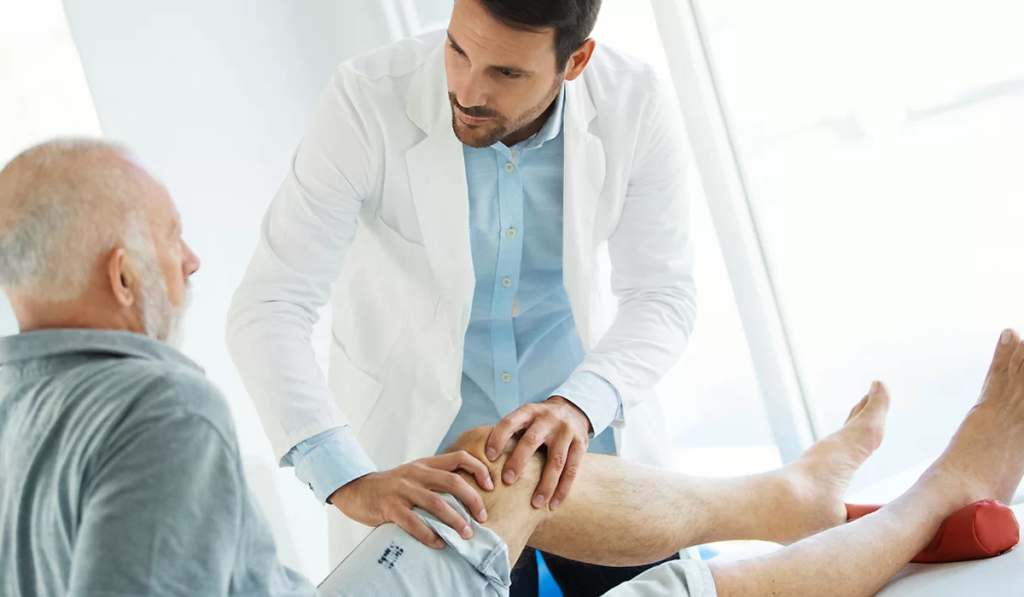
5 Orthopedic Care Strategies for Athletes

Athletes push their bodies to the limit daily, often with intense physical activity that puts immense strain on their bones, muscles, and joints. With repetitive motions, high-impact movements, and intense training, athletes are at increased risk for orthopedic injuries that can sideline them from their sports or daily activities.
Fortunately, with proper orthopedic care strategies from 360 Orthopedics, athletes can reduce their risk of injury and improve their performance. This article will explore some of the most effective orthopedic care strategies for athletes to help them stay in top shape and perform at their best.
Pre-participation Screening
Pre-participation screening is an essential component of orthopedic care for athletes. This process involves a comprehensive evaluation of an athlete’s physical condition, medical history, and overall health to identify any potential risks for injury. By undergoing pre-participation screening, you can be better informed about your physical capabilities and limitations and take steps to prevent injury.
During the screening process, your doctor may assess your cardiovascular health, musculoskeletal system, and neurological function. They may also evaluate the flexibility, strength, balance, and coordination factors. Based on your screening results, your doctor may recommend training modifications, equipment, or other interventions to reduce the risk of injury.
Injury Management and Rehabilitation
When an injury occurs, it Is important to seek prompt medical attention and receive a proper diagnosis. The treatment plan will depend on the type and severity of the injury and your overall health and goals.
Rest, physical therapy, bracing or casting, medication, or surgery can help manage the injury. A rehabilitation program should be tailored to your specific needs and goals and focus on safely and efficiently helping you return to your sport.
Proper Equipment
Proper equipment is an essential part of orthopedic care for athletes. Using equipment that is appropriate for your sport and fits correctly can help you prevent injuries and optimize your performance.
When selecting footwear, you should choose shoes specifically designed for your sport and consider factors such as arch support, cushioning, and fit. Protective gear is also crucial for many sports. Choose a protective gear designed for your sport that fits properly, as ill-fitting gear can increase the risk of injury.
Proper Training Techniques
Proper training techniques and body mechanics are essential for athletes to prevent overuse injuries. Overuse injuries occur due to repetitive motions, such as running, jumping, or throwing, and can cause damage to muscles, tendons, and bones over time.
One important aspect of proper training techniques is incorporating rest and recovery into the training regimen. Rest and recovery are critical for the body to repair and rebuild after intense physical activity. You should also incorporate cross-training exercises into your routines to strengthen different muscle groups and prevent overuse injuries from repetitive motions.
Nutrition
Proper nutrition is a crucial aspect of orthopedic care for athletes. Athletes require a balanced diet of nutrients to support their bone and muscle health. A diet rich in calcium and protein can help prevent injuries and promote healing.
In addition to calcium and protein, athletes should consume various other nutrients, including vitamins and minerals. Vitamin D, for example, is important for calcium absorption and bone health. Athletes may require additional supplementation if they do not get enough through their diet or exposure to sunlight.
Whether you are a professional athlete or enjoy playing sports for fun, orthopedic care is essential for maintaining your health and maximizing your athletic potential. By incorporating these strategies into your training and lifestyle, you can stay injury-free and perform at your best on and off the field.
Remember that everyone’s body is unique and might respond differently to various orthopedic care strategies. Therefore, be sure to listen to your body and pay attention to any warning signs of injury. For more effective results, consider working with a professional physical therapist.
